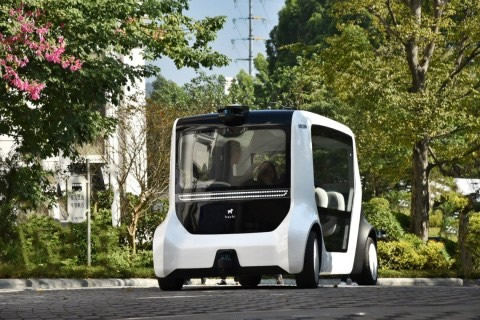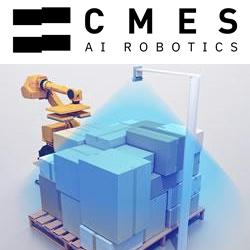In Chinese First, Autonomous Vehicle Services Residential Compound

On November 27, 2019, SEEDLAND, one of China’s top-100 real estate firms, achieved another innovative milestone this month when Hachi Auto autonomous vehicles began servicing the company’s gated community “Boston Ivy” in Guangzhou.
As vehicle with self-driving features are becoming more and more common, SEEDLAND, which developed Hachi Auto, has made the future a reality. It is the first time for a self-driving vehicle to operate in a residential community in China.
Hachi Auto is a compact but spacious vehicle that comfortably seats four. It uses an environmentally friendly electric power train, and comes equipped with an array of safety features. Its styling is minimalist, with large windows and leather seating, and earlier this year earned Hachi Auto the iF DESIGN AWARD, a world-renowned design prize.
In “Boston Ivy”, two Hachi Auto vehicles shuttle between the community’s bus stop and its food court, passing its underground parking, main garden, as well as its activity, marketing, and children’s centers along their route.
Hachi Auto fits seamlessly into China’s hi-tech and on-demand culture. Any resident can call a Hachi Auto using their phone, their apartment’s control panel, or even their smart mirror. To make sure people of all ages and ability can use Hachi Auto, passengers can give commands using either touchscreens or their voice.
Hachi Auto’s panoramic windows and air conditioning offer shelter from the elements, and its comfortable leather seating bring relief after a tiring day at work. In cases of emergency, it can even safely transport people who are sick, injured, or pregnant to their community’s entrance, saving time while an ambulance is en route.
Hachi Auto was extensively tested to guarantee passengers’ safety. During more than 2,000 test drives, observers did not need to intervene once. And with over 100,000 kilometers’ worth of data, the vehicle’s algorithms are ready for all types of weather, be it wind, rain, fog, or nighttime.
An array of LiDAR and cameras makes sure Hachi Auto avoids collisions, with its positioning system accurate to up to two centimeters. The vehicle can sense both stationary and moving objects and decide when it should stop and when it is safe to continue. In case of sudden obstacles, such as children running across the road, Hachi Auto can make emergency stops within 30 centimeters. A short wheelbase and innovative reversing technologies allow for Hachi Auto to maneuver itself out of any situation.
SEEDLAND has a strong reputation for providing its residents with all kinds of technological conveniences. Apartments in the company’s residential communities come equipped with smart furniture that, for example, allows for wireless charging or warns people not to stay seated for too long. SEEDLAND uses robots for tasks ranging from delivering e-commerce packages to providing residents with health check-ups.
In accordance with market conditions, more Hachi Autos will be rolled out to other SEEDLAND residential communities throughout China.
Comments (0)
This post does not have any comments. Be the first to leave a comment below.
Featured Product

